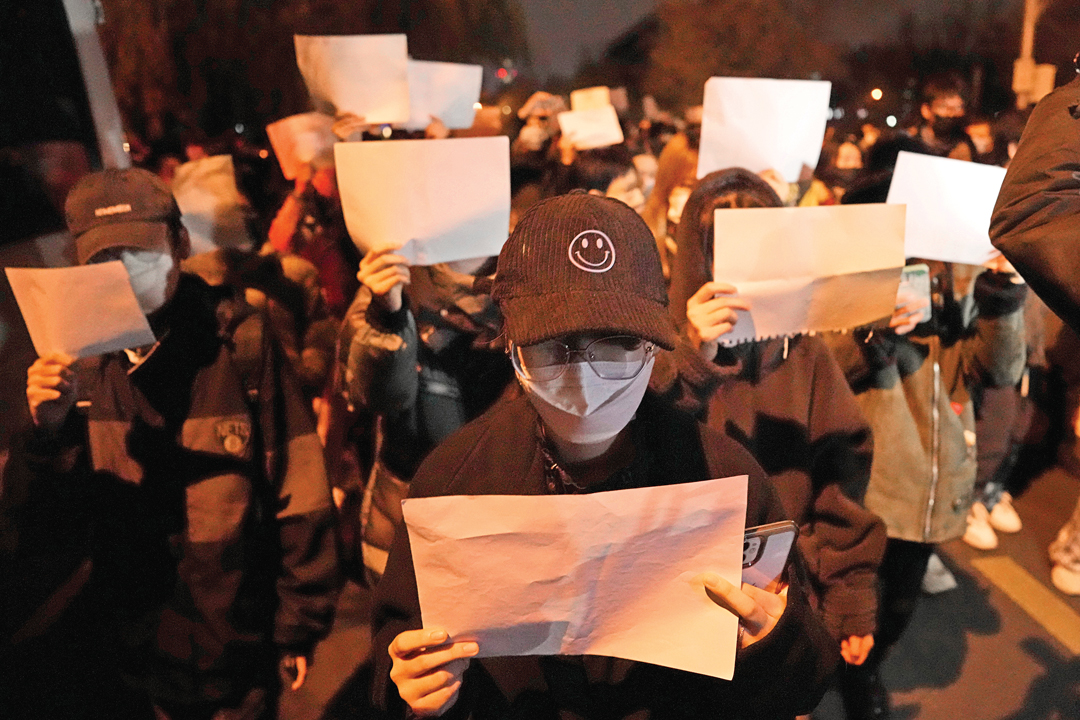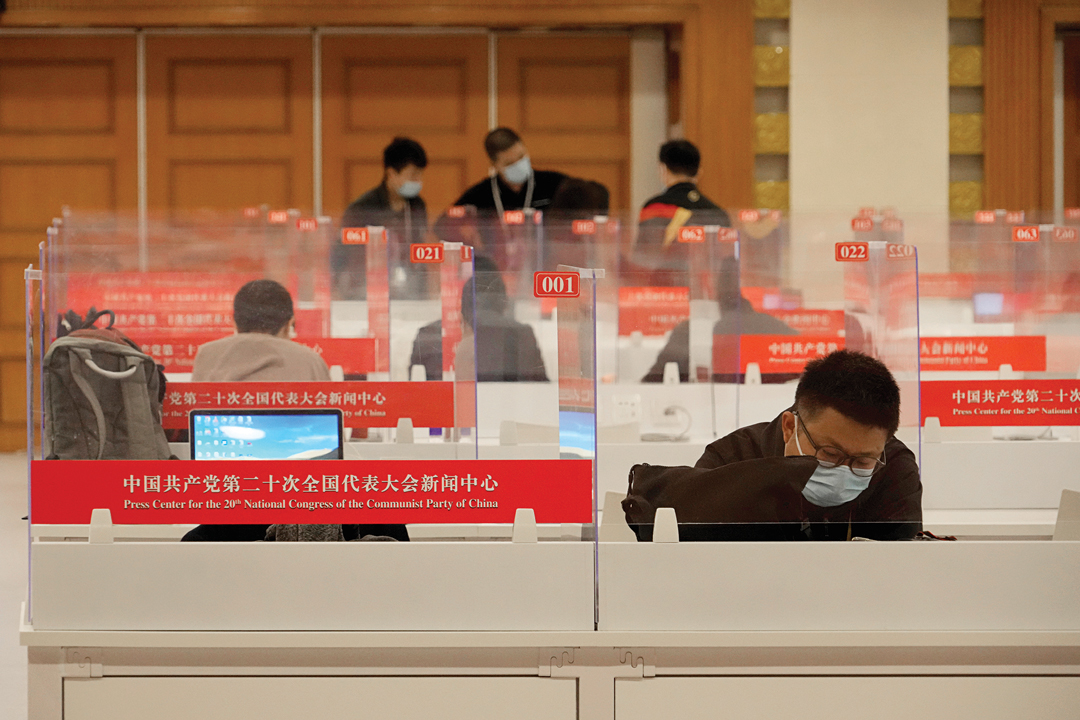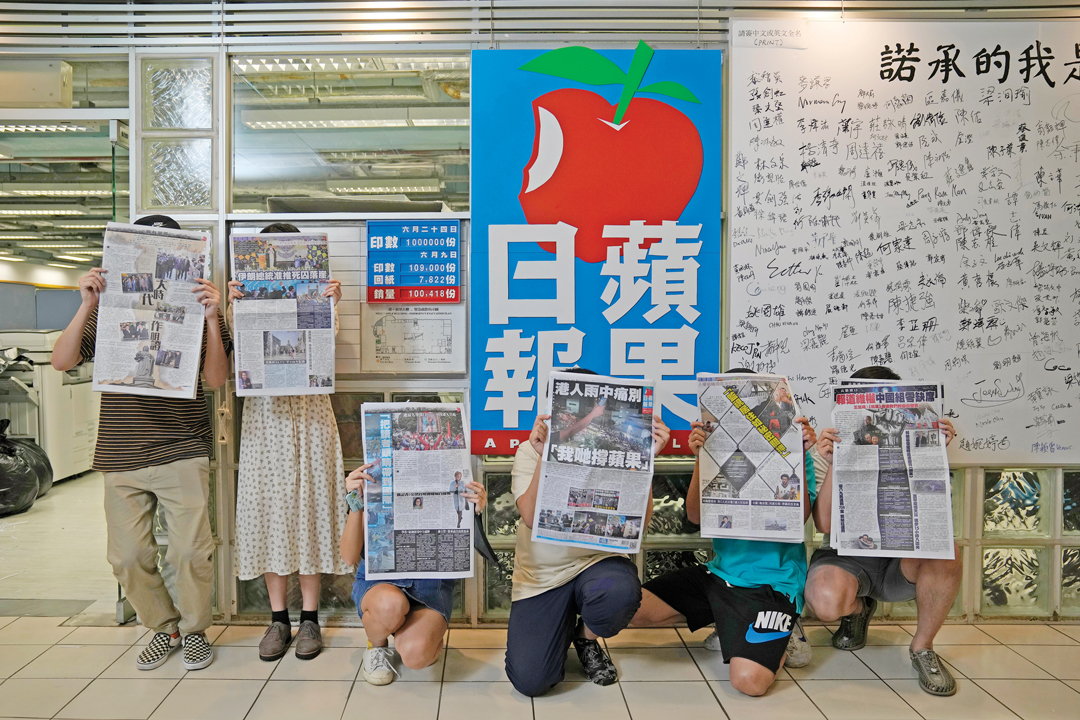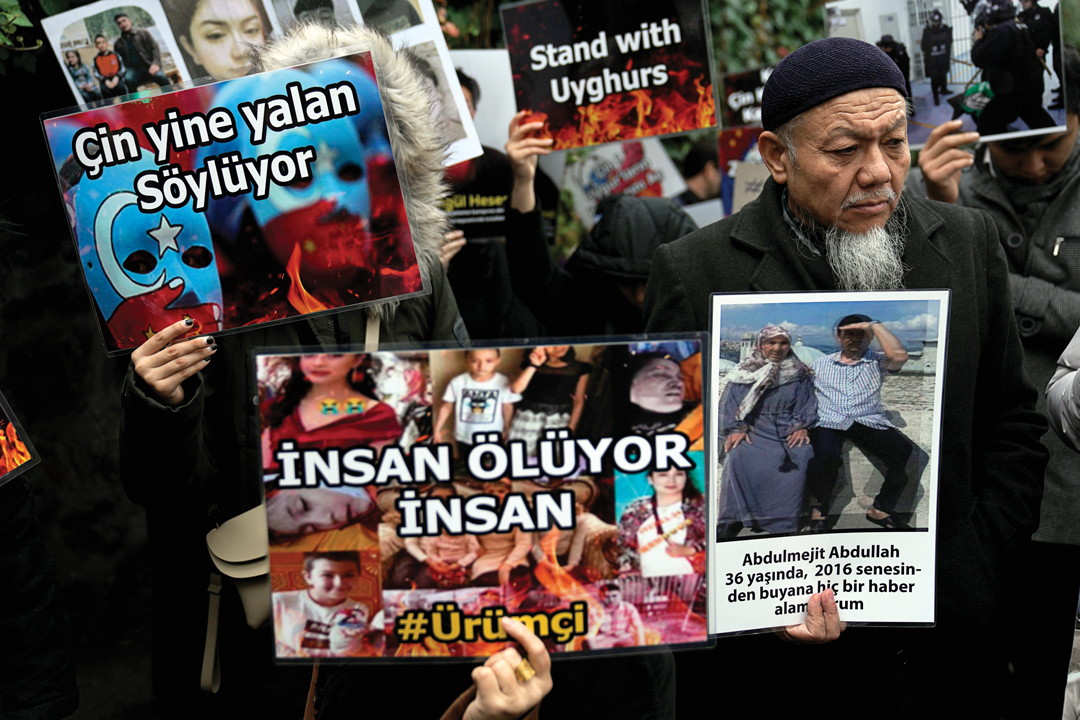An existential fight for allies, partners and like-minded nations
By Professor Kerry K. Gershaneck, fellow, NATO Supreme Headquarters Allied Powers Europe
The Chinese Communist Party (CCP) is waging existential warfare against the rest of the world. It is a war for global control, and the CCP aspires to win it without fighting — or at least without having to engage in major kinetic combat.
The key to the CCP’s strategy is to ensure that target countries cannot — or will not — fight back.
To this end, the CCP engages in political warfare globally to shape narratives, perceptions and policies to protect the party’s power and to achieve its geopolitical and hegemonic ambitions. It employs political warfare against every nation in the Indo-Pacific as well as across Europe, Africa and the Americas. It fights this war overtly and covertly and in highly deceptive ways that are difficult to detect.
Central to achieving its goals, the CCP undermines the sovereignty and political integrity of other countries. It seeks to fulfill the aspirations of thought and behavior control dreamed by China’s earliest despots and the 20th century’s most repressive dictators. Violence and intimidation are key to this political war, as reflected in the brutal repression of peaceful protests across China over the CCP’s “zero-COVID” policy and of Hong Kong’s pro-democracy protests, as well as in the combative confrontations by the CCP’s maritime militia and other armed forces with various nations to assert control of international waters and airspace.
At the CCP’s 20th National Congress in October 2022, CCP General Secretary Xi Jinping fully consolidated his power. In his closing speech, Xi made clear that the CCP intends to accelerate this already intense war to attain his expansionist “China dream” to rejuvenate the nation under his autocratic terms.
The danger posed by the CCP is unprecedented. Targeted nations, especially the United States and its allies and partners, must understand the nature and scope of the CCP’s political warfare to detect, deter, counter and defeat it. Failure to do so will be catastrophic, resulting in loss of sovereignty, resources and freedoms.

Political warfare as internal repression
Brutal internal repression is one form of the CCP’s political warfare, including religious persecution and genocide. In the Xinjiang region in northwestern China, the CCP is trying to destroy Uyghur culture, in part by imprisoning as many as 3 million Muslim-minority Uyghurs in so-called reeducation camps.
The CCP also imprisons tens of thousands of religious practitioners in its pursuit of Sinicization of society. Many are tortured and many have died from maltreatment, organ harvesting or other cruelties. Millions more not imprisoned still face relentless persecution such as torture by electric shock and beatings in their homes, loss of assets and forced indoctrination as punishment for their faith. “The gravest threat to the future of religious freedom is the Chinese Communist Party’s war against people of all faiths: Muslims, Buddhists, Christians and Falun Gong practitioners alike,” U.S. Secretary of State Antony Blinken said during an October 2021 speech in Indonesia.
The release of the People’s Republic of China’s (PRC) secret “China Cables” in 2019 and of the “Xinjiang Police Files” in 2020 proved the atrocities against Uyghurs, including rape, forced sterilization and abortions, physical and psychological torture, and execution. The leaked documents describing the internal workings of detention camps also highlighted the role Xi and other top CCP officials had in crafting the genocidal policies.
None of this is new. The CCP has brutally repressed the Chinese people for a century. It is responsible for large-scale reigns of terror beginning with the CCP conquest of China in 1949, through the Great Leap Famine (1958-62), the Cultural Revolution (1966-76) and other atrocities such as the 1989 Tiananmen Square tragedy when the CCP’s People’s Liberation Army (PLA) massacred civilians after students called for freedom. Historians estimate that up to 100 million Chinese people have died as a result of CCP actions.
The CCP has also conducted assimilation efforts in Tibet for more than a century. Under Xi, the CCP has renewed its campaign by implementing laws, rules and regulations intended to gradually assimilate the Tibetan population into the dominant Chinese Han culture, and undermine Tibetan culture and history. The CCP’s recent activities to undercut Mongolian traditional education, culture and language in Inner Mongolia represent another example of the CCP’s attempts at forced assimilation.
Within China, however, it is nearly impossible to learn of the CCP’s history of terror. References are heavily censored, and people risk imprisonment for even discussing the topic.
Outside China, meanwhile, the CCP’s global propaganda operation claims that accusations of genocide and persecution are the “biggest lies of the century,” and a reflection of the West’s “deep-rooted egotism and prejudice towards China.”
The CCP’s internet censorship, massive propaganda apparatus and relentless indoctrination create an insidious echo chamber for the Chinese people, many of whom embrace patriotic education programs that instill hatred and xenophobia. One outcome is that the CCP weaponizes large numbers of hypernationalized students by sending them to foreign universities, where many propagate CCP narratives and attempt to stifle criticism of the PRC.

Lawfare as a weapon
Legal warfare, or lawfare, is another key weapon in the CCP’s arsenal. In 2015, the CCP arrested and imprisoned lawyers, legal assistants and human rights defenders who were taking Chinese statutes at face value and trying to use the legal system to protect nominally guaranteed rights. The charges included nebulous offenses such as “provoking quarrels.” Many remain imprisoned.
Beginning in 2020, the CCP used a new national security law to crush Hong Kong’s freedoms and any potential opposition to the party. Journalists, former lawmakers and pro-democracy activists were among those arrested and imprisoned. The CCP also attempted to use lawfare to undermine Hong Kong’s election systems. The CCP touted its repression-by-lawfare internally and globally, with a resultant powerful psychological impact on people in the PRC, the Chinese diaspora and the people of Taiwan, among others.
The CCP has also established more than 100 so-called police stations in other countries, despite not having authorization from the host nations. Under the direction of China’s public security ministry, CCP officials at the stations monitor, harass and, in some cases, forcibly repatriate Chinese dissidents and other exiles. Such actions include Operation Fox Hunt and Operation Skynet, in which Chinese security agents penetrated foreign countries to apprehend Chinese officials accused of corruption. However, those operations were less about battling corruption and more about the CCP clamping down on rivals and dissidents. Notably, some Fox Hunt targets living in Canada had close connections with the CCP’s politburo, the party’s chief decision-making body, and knew secrets the party wanted to shield.
The CCP claims the stations, which also spread party propaganda, are administrative centers to help Chinese citizens with tasks such as renewing a driver’s license. Further, the CCP dismissed concerns about its extraterritorial police forces operating on sovereign soil, and a PRC spokesman demanded that the “U.S. side should stop the groundless hyping of this issue.”
Political warfare for global hegemony
As the CCP wages global political warfare, it employs a wide range of weapons to seduce, subjugate, infiltrate and coerce. The CCP cloaks its insidious nature behind innocuous names. The CCP rebranded its One Belt, One Road (OBOR) infrastructure scheme, for example, as the Belt and Road Initiative. OBOR spin-offs that sound enticing but promote coercive policies include the Digital Silk Road and the Polar Silk Road.
Other CCP political weapons include attempting to bribe officials in Pacific island countries, Africa and the Indo-Pacific; trying to silence critics in Australia, Canada and New Zealand; and seeking to interfere in elections in the Maldives, South Korea and Taiwan.
The CCP has attempted to demoralize and destabilize many Pacific island countries through efforts to corrupt officials and socially divide populaces. Palau and Samoa have repelled such CCP neocolonial advances in the South Pacific. Through its United Front Work Department (UFWD) and intelligence operatives, the CCP uses bribes and other financial inducements against these countries — and many others — to target elected officials in hopes of undermining their democracy and national sovereignty. Some of those ensnared have signed security pacts and other agreements that open the door to CCP exploitation of their nations’ fisheries and other natural resources, as well as to PLA access to port and aviation facilities.
In Canada, according to the nation’s Security Intelligence Service, the CCP’s political warfare includes payments through intermediaries to party-affiliated candidates, potentially placing agents in positions to influence national policy, as well as seeking to co-opt and corrupt former Canadian officials, and mounting aggressive campaigns to punish Canadian politicians viewed as threats to the CCP. The party has employed similar tactics in Australia, India, New Zealand, the Philippines and South Korea, as well as in countries participating in OBOR.
In Japan, as in Canada and many other nations, the UFWD is responsible for most elite capture operations. The UFWD runs organizations such as the Japanese branch of its China Council for the Promotion of Peaceful National Reunification to conduct influence operations. One such organization, the Chinese Association of International Friendly Contact (CAIFC), targets Self-Defense Force officials in Japan as it does in other countries. However, in Japan CAIFC also engages with many sectors in society, including Buddhist organizations, architects, calligraphy associations and even Japanese players of the board game Go. Further, UFWD runs at least 15 Confucius Institutes, or supposed Chinese “cultural centers,” as well as friendship associations in Japan to influence Japanese elites and elections. Fortunately, Japan is increasingly taking steps to better defend its security and sovereignty.
According to Federal Bureau of Investigation Director Christopher Wray, other forms of CCP political warfare in the U.S. include blackmail, threats of violence, stalking and kidnappings of those of Chinese ancestry. In England, PRC embassy officials have been videoed beating peaceful protesters on public streets, and in Taiwan CCP-aligned gangs have publicly beaten students protesting pro-PRC legislation. To advance its political warfare, the CCP supports proxy wars. For example, Indian officials have accused the CCP of backing terrorist separatists in the nations’ disputed border region. The CCP’s support and training of warlord armies to coerce Myanmar’s government is also well-documented.

Leveraging multiple pressure points
Indonesia is among the CCP’s media warfare targets, and its experience is indicative of that of other countries such as the Philippines and Thailand. The CCP has dramatically expanded its media influence in Indonesia through content sharing, media partnerships and journalist training. Further, CCP state-run media such as the Xinhua News Agency and the China International Television Corp.’s Hi Indo! channel for young people have established branch offices in recent years, recruiting Indonesian journalists and other staff. The CCP’s return on investment is an amplification of its propaganda and the ability to censor critics and content. In one case, the Chinese tech firm ByteDance manipulated the popular Indonesian news aggregator app Baca Berita to censor articles critical of the CCP regime and all references to Indonesia-China tensions over the South China Sea.
So-called wolf warrior diplomacy is another coercive political warfare strategy of the CCP. Relentlessly belligerent, it entails CCP diplomats engaging in verbal and, on occasion, physical attacks. In October 2022, for example, Chinese diplomats were accused of grabbing and beating a protester outside their consulate in Manchester, England, according to news stories. In 2018, during the Asia Pacific Economic Cooperation (APEC) meeting in Papua New Guinea (PNG), PRC diplomats forced their way into the PNG foreign minister’s office to demand the rewording of the APEC final communique, and in 2020 PRC diplomats beat a Taiwan trade office librarian in Fiji, leaving the victim hospitalized, according to media reports.
The CCP has also succeeded in weaponizing many benign activities for political warfare. Weaponized activities include religious practices; tourism in targeted countries; flows of students; the establishment of friendship societies and sister city organizations; and the purchase of strategically important land, infrastructure and companies.
One example of weaponized religion is the CCP’s effort to exploit Buddhism as a channel for special influence. Co-opting and managing religion is a core function of the UFWD. Under its direction, the State Administration for Religious Affairs (SARA) and the Buddhist Association of China (BAC) seek to work with Buddhists globally to support the CCP’s goals. Operatives from SARA, BAC and the PLA conduct a wide range of operations to influence Buddhists. For example, in Mongolia they attempt to cultivate Buddhist leaders to influence that country’s political elite to comply with the CCP and to undermine the CCP’s perceived enemies. In Japan, these operatives seek to influence Buddhist groups to shape Tokyo’s foreign policy and defense planning in the CCP’s favor. In Australia, CCP operatives have sought to partner with a Buddhist council to influence political leaders, while in Thailand they attempt to influence Buddhist leaders to support OBOR projects and other CCP objectives in the kingdom. In Taiwan, the CCP funnels political interference funds via Taiwan-based Buddhist organizations.
The CCP’s external lawfare campaigns often entail conjuring laws to support illegitimate claims to territory and resources. They also employ bogus maps, most notably with the contrived nine-dash line that encompasses about 2.5 million square kilometers of the South China Sea, to which the PRC lays claim.
The CCP fundamentally rejects the 2016 international tribunal ruling invalidating much of its claim. It also distorts the law to extend Beijing’s administrative writ into the South China Sea, including by designating Sansha, a village in the disputed Paracel Islands, as a Chinese prefecture.
Lawfare is almost always employed with media warfare. For example, Beijing either finds or contrives so-called historical documents to establish a legal basis for its territorial claims, such as in the case of the Japanese-controlled Senkaku Islands in the East China Sea. The CCP then publicly promotes the documents via its state-run media as purported proof of its claim.

Countering the CCP’s ‘China Dream’
The CCP is aggressively waging political warfare globally to achieve its expansionist and totalitarian goals. Accordingly, allies and partners must build a common capacity to detect, deter, counter and defeat the threat. In the Indo-Pacific, an important step would be establishing a center of excellence to provide an intellectual foundation for combatting the CCP’s political warfare. Such a center would help like-minded nations develop an understanding of the threat and devise effective responses.
Key steps nations can take individually to build that capacity include:
- Rapidly generate national strategies to assess and combat the CCP’s political warfare, including establishing policies and operations to defeat it.
- Establish education programs on political warfare for government officials, business leaders, law enforcement personnel, academics and journalists.
- Enhance capabilities for the legal community, law enforcement and counterintelligence officials to investigate, disrupt and prosecute CCP political warfare activities. Review laws and policies to ensure adequate and effective mission statements, requirements, resources, training and assessments.
- Routinely expose CCP political warfare operations. Mandate an annual public report that includes practical advice for leaders and citizens regarding those threats.
- Raise the costs to the CCP of its political warfare. While many countries are increasingly focused on CCP espionage, the party’s political warfare operatives face few, if any, consequences. To counter CCP interference and intimidation, for example, Chinese diplomats who threaten media organizations should have their diplomatic status revoked and be expelled from the host nation.
This article was previously published in Indo-Pacific Defense Forum, a publication of U.S. Indo-Pacific Command.


Comments are closed.